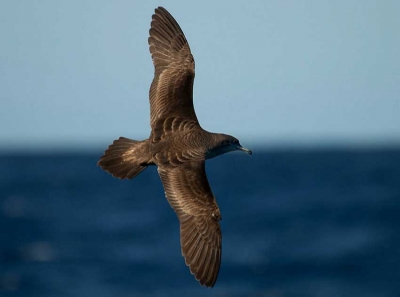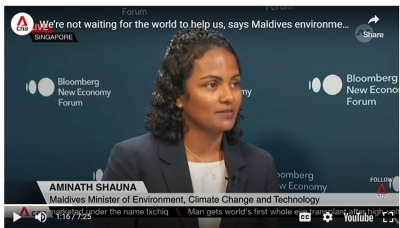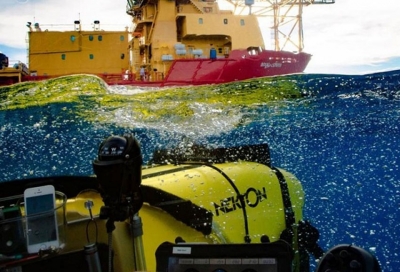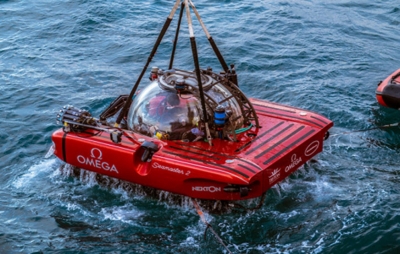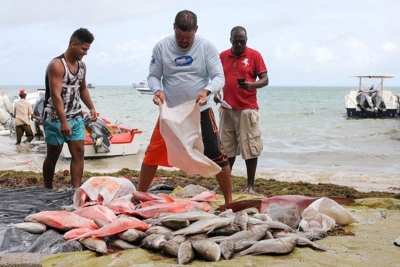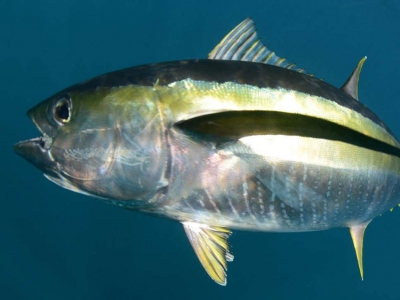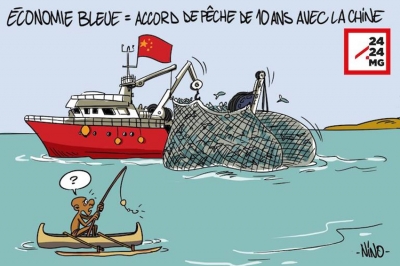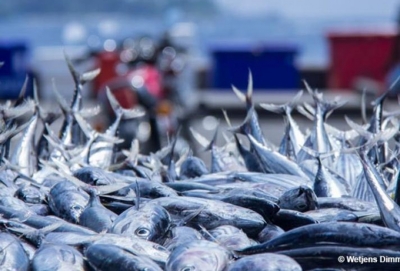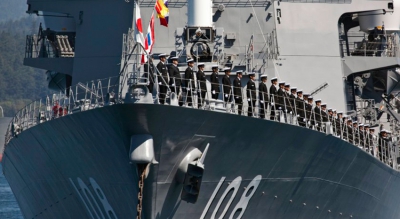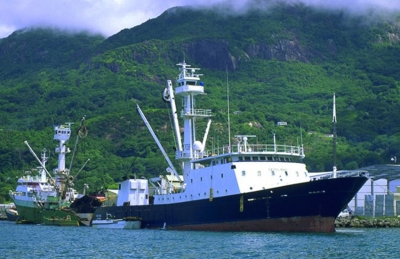Displaying items by tag: Indian Ocean
Research: Roaming seabirds need ocean-wide protection, research shows
Unlike other oceans, which are known to have specific “hotspots” where predators, including seabirds, gather in large numbers to feed, the Indian Ocean lacks such concentrated feeding areas, a recent paper has revealed. This lack of hotspots is particularly concerning given the various threats seabirds face due to human activities.
Tired of failed climate promises by rich nations, tiny Maldives takes matters into its own hands
(channelnewsasia.com) Tired of unfulfilled climate promises by rich countries, the Maldives is implementing its own environmental protection strategies to stay above water, says its Minister of Environment, Climate Change and Technology Aminath Shauna.
Nekton expedition to conduct first seamounts research in waters of Seychelles, Maldives
(Seychelles News Agency 12/2/2020): A joint Nekton expedition in Seychelles’ and Maldives’ waters will for the first time provide information about seamounts — underwater mountains — in the Indian Ocean region.The exploration set to take place next month follows the successful mission in 2019 and will involve 50 international scientists, technicians, media and crew including from the two countries.
New scientific mission will dive deep into Seychelles' ocean
(Seychelles News Agency February 6, 2020) : A deep-sea mission by scientists to establish a baseline of marine life and the state of the ocean in Seychelles, the Maldives and the high seas of the central Indian Ocean will start March 16, State House said in a press release on Wednesday.
SNA: Indian Ocean fishermen gather in Seychelles, discuss climate change, Blue Economy
(Seychelles News Agency) - Artisanal fishers from the Indian Ocean countries have gathered in a training session in Seychelles to identify skills needed in co-management, leadership and communication to tackle common challenges.
The three-day training from September 11-13 is being organised by the Federation of Artisanal Fishers of the Indian Ocean (FPAOI) and the Seychelles Fisheries Authority (SFA) at the Coco D'Or Hotel in the northern Mahe district of Beau Vallon.
The chairman of the Federation, Seychellois Keith Andre, told journalists that the fishermen in the region are facing common challenges such as climate change which needs to be dealt with collectively.
“We have found that in our previous training certain countries have surmounted certain challenges that others are still struggling with and we thought that by sharing experiences and knowledge we could find the solution at the doorstep of our neighbours,” said Andre.
He added that by meeting collectively “we have managed to accomplish many great things such as pushing for a resolution to reduce industrial fishing by big operators which is often not sustainable.”
The training, which is also helping with the establishment of a line and track fishery co-management plan, is sponsored by the Technical Centre for Agricultural and Rural Cooperation ACP-EU as ongoing support since 2017.
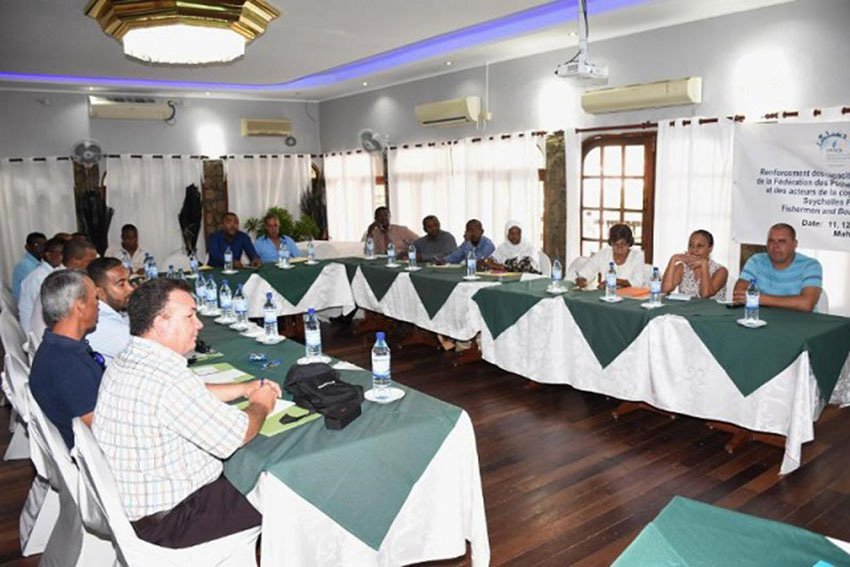
The three-day training is being organised by the Federation of Artisanal Fishers of the Indian Ocean (FPAOI) and the Seychelles Fisheries Authority. (Joena Meme) Photo License: CC-BY
Apart from climate change, Andre said that the Blue Economy concept is also a threat to fishermen.
“All of a sudden everybody wants a chunk of the ocean and it is being done at the expense of the fishermen. In the name of protection, everybody wants the fishermen out to protect the reef. This is why we are providing training in co-management and leadership as the right management system can allow our profession to co-exist with other activities,” he said.
Fisheries is the second top contributor to the economy of Seychelles, a group of 115 islands in the western Indian Ocean.
The chairperson of the Seychelles’ Roche Caiman Fisherman Association, Florant Tirant, told SNA that the training has taught him that fishing is not only about going out to sea to fish and then sell what you have caught.
“There is more to it than that. I have been taught that with the right management skills I can move from being a small fisherman to one who is now capable of managing my boat, finance as well as leading and mentoring other fishermen through an association,” said Tirant.
The training is also focusing on building the knowledge of fishermen and their negotiating skills and are providing success stories to encourage others to take up this noble profession.
Consumers urged to boycott yellowfin tuna from the Indian Ocean
Consumers are being urged to boycott yellowfin tuna from the Indian Ocean, including that originating from Seychelles, because of unsustainable fishing by the European Union fleet. A Report by Blue Marine Foundation warns that catches continue to rise despite warnings from the Indian Ocean Tuna Commission's (IOTC) scientists that they would have to be cut by 20% to give the stock a 50-50 chance of recovering by 2024.
Fishers oppose deal opening Madagascar to Chinese fishing
Two months ago, a Malagasy association signed a 10-year, $2.7 billion fishing deal with a group of Chinese companies to send 330 fishing vessels to Madagascar. The Agence Malagasy de Développement économique et de Promotion d’entreprises (AMDP) made the deal, which it says was designed to promote the country’s “blue economy.” It did so without consulting the fisheries ministry, the national environment office, civil society groups, or local fishers, who are already struggling with foreign competition for Madagascar’s dwindling marine stocks. Many of these are now calling for the deal to be scrapped. The critics say the AMDP failed to set up an open bidding process and did not conduct an environmental impact assessment or any public consultation. No draft of the deal has been made public.
More on Mongabay
Dr. Nirmal Shah. Environment In Seychelles
Big row over certification of Indian Ocean Tuna fishery
A row has erupted between the Marine Stewardship Council and environmental & sustainable fishing groups regarding MSC certification of the Echebastar Indian Ocean tuna purse seine fishery. The purse skipjack fishery obtained Marine Stewardship Council (MSC) certification https://goo.gl/gQGRqj, weeks after an independent adjudicator paved the way for the process to move forward, https://goo.gl/qfWRPT.
As Japan makes its move in the Indian Ocean power play what will be the future of the Blue Economy?
It’s becoming more and more evident that the trajectory of Seychelles’ Blue Economy is heavily dependant on geopolitics in our region. Who the big regional players are and whether they are advocates of sustainability and equity (2 key pillars of the Blue Economy) will be determining factors in the take-off or crash and burn of the Blue Economy.
Piracy, Poverty and Power
Last year (2008) I was surprised to see the entire Western Indian Ocean tuna purse seining fleet anchored around Victoria harbor. I learnt later that they had come to shelter from the Somali pirates.
